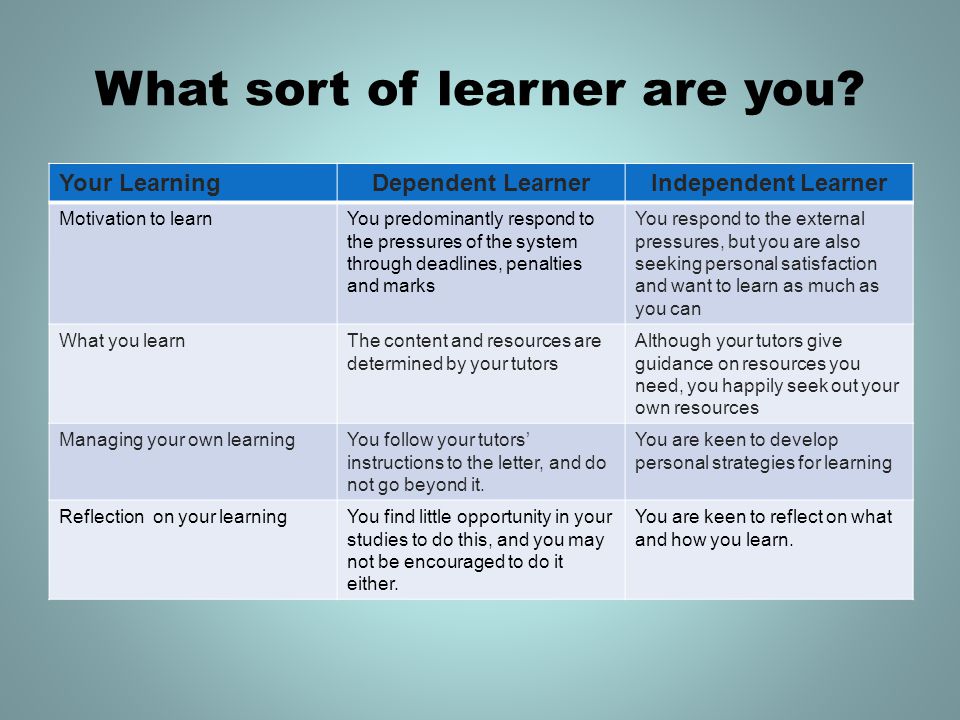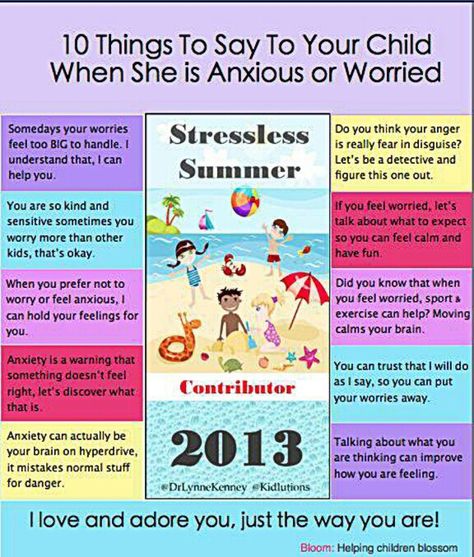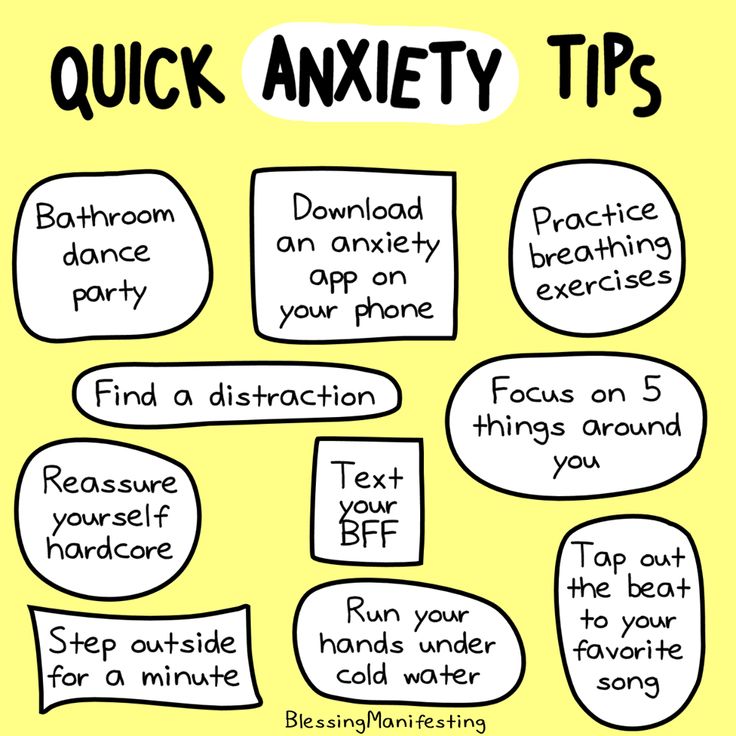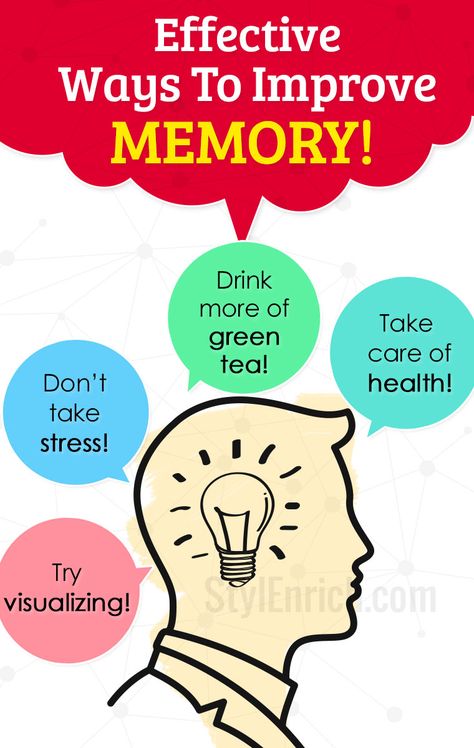Unable to express
Symptoms, diagnosis, and links with mental health
Alexithymia is when a person has difficulty experiencing, identifying, and expressing emotions. It is not a mental health disorder but has links with post-traumatic stress disorder (PTSD), eating disorders, and various other conditions. It can occur with autism.
People with alexithymia may have problems maintaining relationships and taking part in social situations. They may have a co-occurring mental health condition, such as depression, or no diagnosable mental health conditions. Alexithymia also has links with autism.
Up to 13% of the population experience alexithymia, according to some research. It is more common in males than females, with one study among a prison population in China indicating that over 30% of the prisoners experienced it.
In this article, we discuss the symptoms and causes of alexithymia. We also look at its links with mental health conditions.
Share on PinterestA person with alexithymia may find it hard to communicate their emotions to others.Researchers describe alexithymia as a construct relating to a difficulty experiencing, identifying, and expressing emotions.
It is not a clinical diagnosis, and mental health professionals do not consider it a disorder, although it may occur alongside some mental health conditions.
Peter Sifneos, a psychiatrist and professor emeritus of psychiatry at Harvard Medical School, first described alexithymia in the early 1970s. The word comes from Greek: ‘a’ meaning lack, ‘lexis’ meaning word, and ‘thymos’ meaning emotion — overall, it means having a lack of words for emotions.
People with alexithymia have:
- problems with introspection, or observing their own mental and emotional processes
- experience confusion around bodily sensations connected to emotions
- struggle to communicate their emotions to others
Alexithymia also makes it difficult for people to identify and respond to emotions in others. These issues can lead to difficulties in social settings and interpersonal relationships.
Signs and symptoms of alexithymia include:
- difficulties identifying feelings and emotions
- problems distinguishing between emotions and bodily sensations that relate to those emotions
- limited ability to communicate feelings to others
- difficulties recognizing and responding to emotions in others, including tone of voice and facial expressions
- a lack of fantasies and imagination
- a logical and rigid thinking style that does not account for emotions
- poor coping skills when it comes to dealing with stress
- behaving less altruistically than others
- appearing distant, rigid, and humorless
- poor life satisfaction
Share on PinterestA person may be more at risk of alexithymia if they have a close relative with the condition.
Experts do not understand the exact cause of alexithymia. Some studies suggest that it may result from one or more of the following:
- Genetics. Research on twins indicates that there is a genetic component to alexithymia.
 People are more likely to have alexithymia if a close relative also has it.
People are more likely to have alexithymia if a close relative also has it.
- Environmental factors. The same twin study also indicates that environmental factors play a role in alexithymia. Examples of environmental factors include a history of childhood trauma, the presence of a physical or mental health condition, or socioeconomic factors.
- Brain injury. Research reports that people with injury to a part of the brain known as the anterior insula experience increased levels of alexithymia.
Risk factors for alexithymia include:
- being male, with one study reporting that men experience alexithymia almost twice as often as women
- advancing age
- a low level of education
- low socioeconomic status
- low emotional intelligence
Alexithymia is not a mental health disorder, so doctors and mental health professionals cannot formally diagnose the phenomenon. However, there are questionnaires and scales that professionals can use to check for signs of alexithymia.
These include:
The Twenty-Item Toronto Alexithymia Scale (TAS-20) that assesses:
- a person’s ability to identify feelings and to separate these from physical sensations
- their ability to communicate feelings to other people
- their inclination to show externally oriented thinking (rather than an introspective thinking style)
The Bermond–Vorst Alexithymia Questionnaire (BVAQ) that is made up of 40 items within the following five subscales:
- emotionalizing
- fantasizing
- identifying
- analyzing
- verbalizing
The Observer Alexithymia Scale (OAS) that is made up of 33 items in the following five-factor structure:
- distant
- uninsightful
- somatizing
- humorless
- rigid
Alexithymia has a strong link to autism spectrum disorder (ASD), with a 2018 study indicating that approximately half of autistic people likely have alexithymia. It is especially prevalent in those with complex ASD.
Other research proposes that the social and emotional difficulties experienced by those with ASD may not be a feature of autism, but rather of co-occurring alexithymia.
Alexithymia commonly co-occurs with certain mental health conditions, including depression and post-traumatic stress disorder (PTSD).
Depression
Some results indicate that clinical features of depression are at least somewhat dependent on the presence of alexithymia. Those with co-occurring depressive disorders and alexithymia are likely to demonstrate more severe symptoms of depression, psychosis, and phobias.
Post-traumatic stress disorder
Share on PinterestResearch has shown that those with PTSD may be at higher risk of alexythemia.
A few small studies suggest that alexithymia is higher among those with PTSD.
One study of 22 war veterans with PTSD found that 41% had alexithymia.
A 1997 study comparing Holocaust survivors with and without PTSD found that survivors with PTSD had significantly higher scores on tests for alexithymia than those without PTSD.
Attention-deficit hyperactivity disorder
A 2013 study on 50 children with attention-deficit hyperactivity disorder (ADHD) suggests an association between alexithymia and hyperactivity and impulsivity, although not with inattentiveness.
Eating disorders
A 2017 review indicates that, across the spectrum of eating disorders, people report problems being able to identify or describe their emotions. Other research links higher levels of alexithymia with poorer treatment outcomes for eating disorders.
Others
Research links alexithymia with other conditions, including:
- suicidality
- schizophrenia
- neurodegenerative diseases
Alexithymia is not a condition in its own right, but rather an inability to identify and describe emotions. People with alexithymia have difficulties recognizing and communicating their own emotions, and they also struggle to recognize and respond to emotions in others.
There is no formal diagnosis for alexithymia, although several scales can help to identify its signs.
As it is not a disorder, health professionals do not currently recommend or prescribe treatment for alexithymia. However, if it co-occurs with another condition, such as depression or PTSD, people can seek treatment for those issues to avoid worsening symptoms or complications.
Alexithymia: Causes, Symptoms, and Treatments
Alexithymia: Causes, Symptoms, and Treatments- Health Conditions
- Featured
- Breast Cancer
- IBD
- Migraine
- Multiple Sclerosis (MS)
- Rheumatoid Arthritis
- Type 2 Diabetes
- Articles
- Acid Reflux
- ADHD
- Allergies
- Alzheimer's & Dementia
- Bipolar Disorder
- Cancer
- Crohn's Disease
- Chronic Pain
- Cold & Flu
- COPD
- Depression
- Fibromyalgia
- Heart Disease
- High Cholesterol
- HIV
- Hypertension
- IPF
- Osteoarthritis
- Psoriasis
- Skin Disorders and Care
- STDs
- Featured
- Discover
- Wellness Topics
- Nutrition
- Fitness
- Skin Care
- Sexual Health
- Women's Health
- Mental Well-Being
- Sleep
- Product Reviews
- Vitamins & Supplements
- Sleep
- Mental Health
- Nutrition
- At-Home Testing
- CBD
- Men’s Health
- Original Series
- Fresh Food Fast
- Diagnosis Diaries
- You’re Not Alone
- Present Tense
- Video Series
- Youth in Focus
- Healthy Harvest
- No More Silence
- Future of Health
- Wellness Topics
- Plan
- Health Challenges
- Mindful Eating
- Sugar Savvy
- Move Your Body
- Gut Health
- Mood Foods
- Align Your Spine
- Find Care
- Primary Care
- Mental Health
- OB-GYN
- Dermatologists
- Neurologists
- Cardiologists
- Orthopedists
- Lifestyle Quizzes
- Weight Management
- Am I Depressed? A Quiz for Teens
- Are You a Workaholic?
- How Well Do You Sleep?
- Tools & Resources
- Health News
- Find a Diet
- Find Healthy Snacks
- Drugs A-Z
- Health A-Z
- Health Challenges
- Connect
- Breast Cancer
- Inflammatory Bowel Disease
- Psoriatic Arthritis
- Migraine
- Multiple Sclerosis
- Psoriasis
Medically reviewed by Timothy J. Legg, PhD, PsyD — By Kristeen Cherney — Updated on Sep 9, 2021
Legg, PhD, PsyD — By Kristeen Cherney — Updated on Sep 9, 2021
Having alexithymia can make it hard for you to express or identify your emotions. The condition can occur with certain conditions, such as depression, neurological conditions, and brain injury.
Alexithymia is a broad term to describe problems with feeling emotions. In fact, this Greek term used in Freudian psychodynamic theories loosely translates to “no words for emotion.” While the condition is not well-known, it’s estimated that 1 in 10 people has it.
While Freudian theories are largely considered dated, this condition seems to be increasing in awareness. It’s often seen as a secondary diagnosis in other preexisting mental health conditions and disabilities, including depression and autism.
However, this does not mean that everyone with these conditions has problems expressing with and identifying emotions. In fact, studies show that it only affects a small percentage.
People who do have alexithymia may describe themselves as having difficulties with expressing emotions that are deemed socially appropriate, such as happiness on a joyous occasion. Others may have trouble identifying their emotions.
Others may have trouble identifying their emotions.
Such individuals don’t necessarily have apathy. They instead may not have as strong of emotions as their peers, and may have difficulties feeling empathy.
Read on to learn more about the possible causes of alexithymia, as well as treatments and therapies for this condition.
Alexithymia isn’t well understood. There’s a possibility it may be genetic.
The condition may also be a result of brain damage to the insula. This part of the brain is known for its role in social skills, empathy, and emotions, with some studies linking insula lesions to apathy and anxiety.
Links to autism
The symptoms of autism spectrum disorder are wide-ranging, but there are still some stereotypes associated with this condition. One major stereotype is a lack of empathy, something that has largely been debunked.
At the same time, some research indicates that up to half of people with autism also experience alexithymia. In other words, it’s alexithymia that causes the lack of empathy, and not autism itself.
In other words, it’s alexithymia that causes the lack of empathy, and not autism itself.
Emotions and depression
It’s also possible to experience alexithymia with depression. It has been noted in major depressive and postpartum disorders, as well as schizophrenia. Research indicates that between 32 and 51 percent of people with depressive disorders also have alexithymia.
Possible traumaAdditionally, this condition has been noted in people who have experienced trauma, especially during early childhood. Trauma and neglect at this stage may cause changes in the brain that can make it difficult to feel and identify emotions later in life.
Other associated conditions
Research also indicates that this condition may be present in certain neurological diseases and injuries. These include:
- Alzheimer’s disease
- dystonia
- epilepsy
- Huntington’s disease
- multiple sclerosis
- Parkinson’s disease
- stroke
- traumatic brain injury
As a condition marked by lack of feelings, it can be difficult to recognize the symptoms of alexithymia. Since this condition is associated with an inability to express feelings, an affected person might come across as being out of touch or apathetic.
Since this condition is associated with an inability to express feelings, an affected person might come across as being out of touch or apathetic.
However, a person with alexithymia might personally experience the following in social contexts:
- anger
- confusion
- difficulty “reading faces”
- discomfort
- emptiness
- increased heart rate
- lack of affection
- panic
This condition may also make it difficult for a person to interpret body changes as emotional responses. For example, you might have trouble linking a racing heart to excitement or fear, but are still able to acknowledge that you’re experiencing a physiological response in the moment.
Alexithymia is diagnosed by a mental health professional. It’s not officially recognized by the fifth edition of the Diagnostic and Statistical Manual of Mental Disorders (DSM-5).
Instead, your mental health provider will likely ask you questions and provide a diagnosis based on your answers. You may also be asked to provide a self-reported questionnaire.
You may also be asked to provide a self-reported questionnaire.
Another possible test is an MRI performed by a neurologist. This will provide images of the insula in the brain.
There’s no one single test for alexithymia, much like neurological disorders and mental illnesses in general. It can take time to receive the right diagnosis.
To date, there isn’t a single individual treatment for alexithymia. The exact treatment approach depends on your overall health needs. For example, if you have depression or anxiety, taking certain medications for these conditions could also help mental health symptoms.
Therapies may also be helpful for this condition. These allow you to participate in exercises to help improve mental health.
Possible therapy options include:
- cognitive behavioral therapy (CBT)
- group therapy
- psychotherapy (also known as “talk therapy”)
One possible step towards emotional recognition is to start being mindful of your own physiological responses. Some research has suggested the importance of beginning with your heart rate.
Some research has suggested the importance of beginning with your heart rate.
Notice whether your heart rate goes up in certain situations, and explore the possibilities of why this could be. A heart rate monitor or fitness watch can also help. With practice, you may become better able to distinguish anger from excitement and fear, for example. A journal can also help you document your physical responses and emotional patterns.
It’s also important to keep in mind that negative emotions are just as important as positive ones. Learning how to identify these emotions and work with them (not against them) can help you lead a more fulfilling life.
Alexithymia can cause frustration for people who experience it, as well as friends and loved ones. If you think you’re having trouble with recognizing or describing feelings, consider talking to a doctor about it. They can help guide you to the right therapy options to help improve on these important life skills.
If you don’t already have a mental health professional, our Healthline FindCare tool can help you connect to doctors in your area.
Alexithymia isn’t widely known, but this condition has been studied for more than four decades. It’s presented in individuals who have difficulty recognizing and expressing feelings, and it often coincides with another underlying neurological condition or mental health disorder.
While not inherently dangerous, this condition may inadvertently lead to interpersonal and relationship issues. The good news is that there are therapies available that can help you improve on mental health skills. Not only will this help with relationships with others, but more importantly, you may feel better, too.
Read this article in Spanish.
Last medically reviewed on January 28, 2020
How we reviewed this article:
Healthline has strict sourcing guidelines and relies on peer-reviewed studies, academic research institutions, and medical associations. We avoid using tertiary references. You can learn more about how we ensure our content is accurate and current by reading our editorial policy.
- Bamonti PM, et al. (2010). Association of alexithymia and depression symptom severity in adults 50 years of age and older.
ncbi.nlm.nih.gov/pmc/articles/PMC3071987/ - Goerlich KS. (2018). The multifaceted nature of alexithymia—A neuroscientific perspective.
frontiersin.org/articles/10.3389/fpsyg.2018.01614/full - Mosaic EY. (2019). For people with alexithymia, emotions are a mystery.
spectrumnews.org/news/people-alexithymia-emotions-mystery/ - Poquerusse J, et al. (2018). Alexithymia and autism spectrum disorder: A complex relationship.
ncbi.nlm.nih.gov/pmc/articles/PMC6056680/ - Ricciardi L, et al. (2015). Alexithymia in neurological disease: A review. DOI:
doi.org/10.1176/appi.neuropsych.14070169 - Samur D, et al. (2013). Four decades of research on alexithymia: Moving toward clinical applications.
ncbi.nlm.nih.gov/pmc/articles/PMC3832802/ - Uddin LQ, et al.
 (2017). Structure and function of the human insula.
(2017). Structure and function of the human insula.
ncbi.nlm.nih.gov/pmc/articles/PMC6032992/
Our experts continually monitor the health and wellness space, and we update our articles when new information becomes available.
Current Version
Sep 9, 2021
Written By
Kristeen Cherney, PhD
Edited By
Julia Stevenson
Copy Edited By
Copy Editors
Jan 28, 2020
Written By
Kristeen Cherney, PhD
Edited By
Allison Tsai
Medically Reviewed By
Timothy J. Legg, PhD, PsyD
Copy Edited By
Steve Barry
Share this article
Medically reviewed by Timothy J. Legg, PhD, PsyD — By Kristeen Cherney — Updated on Sep 9, 2021
Read this next
Emotional Detachment: What It Is and How to Overcome It
Medically reviewed by Jennifer Litner, PhD, LMFT, CST
Emotional detachment can be a healthy choice or an unconscious behavior that keeps you lonely and isolated.
 We discuss the differences in types of…
We discuss the differences in types of…READ MORE
Cognitive Behavioral Therapy for Bipolar Disorder
Medically reviewed by Matthew Boland, PhD
Discover how cognitive behavioral therapy can help with the management of bipolar disorder by replacing negative reactions with objective responses.
READ MORE
Is There a Link Between Diabetes and Depression? Know the Facts
Medically reviewed by Tiffany Taft, PsyD
Does type 2 diabetes put you at a higher risk for depression? Here's what you need to know, including how to identify symptoms and plan for treatment.
READ MORE
Types of Mental Health Professionals
Medically reviewed by George Krucik, MD, MBA
Learn about the different kinds of mental health professionals and how they can help you.

READ MORE
Traumatic Events
Medically reviewed by Matthew Boland, PhD
Traumatic events can cause physical, emotional, or psychological, harm. Learn how to cope and when you should talk with a professional.
READ MORE
What to Know About Body-Focused Repetitive Behaviors (BFRBs)
Medically reviewed by Kendra Kubala, PsyD
If you’re concerned about your habitual self-grooming behaviors, help is available.
READ MORE
What Causes Nervous Laughter?
Medically reviewed by Timothy J. Legg, PhD, PsyD
Nervous laughter is not uncommon, and often happens in situations that seem inappropriate. We'll delve into why this happens and how to cope.
READ MORE
Queen Elizabeth's Cause of Death Due to Old Age: What that Means
After Queen Elizabeth II died in early September, the National Records of Scotland released an extract from her death certificate listing her cause of…
READ MORE
Habits Matter More Than You Might Think — These Tips Can Help the Good Ones Stick
Medically reviewed by Joslyn Jelinek, LCSW
Habits often happen unconsciously, but they can have a big impact on your everyday life.
 Explore types of habits and tips to create new ones here.
Explore types of habits and tips to create new ones here. READ MORE
Question to the prosecutor - Moscow Prosecutor's Office
Question to the prosecutor
- 8 August 2019, 14:23
When is informed voluntary consent required for medical intervention?
Text
Share
Answered by Kuzminsky Interdistrict Prosecutor of Moscow Evgeny Leonidovich Mostovoy .
Informed voluntary consent to medical intervention is given by a citizen or his legal representative when applying to a medical organization in writing on paper or in the form of an electronic document. Consent is required in case of questioning, detection of complaints, examination, non-invasive examinations, drug administration, etc.
Federal Law No. 323 of November 21, 2011 “On the Basics of Protecting the Health of Citizens in the Russian Federation” provides for cases where medical intervention is possible without the consent of a citizen or his legal representative. Thus, medical intervention without consent is allowed:
if medical intervention is necessary for urgent reasons to eliminate the threat to a person's life and if his condition does not allow him to express his will or there are no legal representatives;
if the person suffers from a disease that poses a danger to others;
if the person suffers from a severe mental disorder;
when conducting a forensic medical and (or) forensic psychiatric examination;
in the provision of palliative care, if the citizen's condition does not allow him to express his will and there is no legal representative.
In cases where medical intervention is necessary for emergency reasons to eliminate a threat to a person’s life or if a person suffers from a disease that poses a danger to others, the decision on medical intervention without the consent of the citizen or his legal representative is taken by the court or a council of doctors, and in the case if it is impossible to convene a council, - directly by the attending (duty) doctor with such a decision entered into the patient's medical records and subsequent notification of the officials of the medical organization (head of the medical organization or head of the department of the medical organization) and the citizen in respect of whom the medical intervention was carried out, or his legal representative.
In relation to persons suffering from severe mental disorders, as well as persons who have committed socially dangerous acts (crimes), such a decision is made only by the court.
When providing palliative care, if the state of a citizen does not allow him to express his will and there is no legal representative, the decision on medical intervention is made by a medical commission or, if it is impossible to assemble a medical commission, by a council of doctors or directly by the attending (duty) doctor with the introduction of such decisions in the patient's medical records and subsequent notification of the officials of the medical organization (the head of the medical organization or the head of the department of the medical organization) and the citizen in respect of whom the medical intervention was carried out, or his legal representative.
When is informed voluntary consent required for a medical intervention?
Answered by the Kuzminsky Interdistrict Prosecutor of Moscow Evgeny Leonidovich Mostovoy .
Informed voluntary consent to medical intervention is given by a citizen or his legal representative when applying to a medical organization in writing on paper or in the form of an electronic document. Consent is required in case of questioning, detection of complaints, examination, non-invasive examinations, drug administration, etc.
Federal Law No. 323 of November 21, 2011 “On the Basics of Protecting the Health of Citizens in the Russian Federation” provides for cases where medical intervention is possible without the consent of a citizen or his legal representative. Thus, medical intervention without consent is allowed:
if medical intervention is necessary for emergency reasons to eliminate the threat to a person's life and if his condition does not allow him to express his will or there are no legal representatives;
if a person suffers from a disease that poses a danger to others;
if the person suffers from a severe mental disorder;
when conducting a forensic medical and (or) forensic psychiatric examination;
in the provision of palliative care, if the citizen's condition does not allow him to express his will and there is no legal representative.
In cases where medical intervention is necessary for emergency reasons to eliminate a threat to a person’s life or if a person suffers from a disease that poses a danger to others, the decision on medical intervention without the consent of the citizen or his legal representative is taken by the court or a council of doctors, and in the case if it is impossible to convene a council, - directly by the attending (duty) doctor with such a decision entered into the patient's medical records and subsequent notification of the officials of the medical organization (head of the medical organization or head of the department of the medical organization) and the citizen in respect of whom the medical intervention was carried out, or his legal representative.
In relation to persons suffering from severe mental disorders, as well as persons who have committed socially dangerous acts (crimes), such a decision is made only by the court.
When providing palliative care, if the state of a citizen does not allow him to express his will and there is no legal representative, the decision on medical intervention is made by a medical commission or, if it is impossible to assemble a medical commission, by a council of doctors or directly by the attending (duty) doctor with the introduction of such decisions in the patient's medical records and subsequent notification of the officials of the medical organization (the head of the medical organization or the head of the department of the medical organization) and the citizen in respect of whom the medical intervention was carried out, or his legal representative.
Alexithymia: an emotional gap hiding under the mask of normality
Alexithymia is a psychological state of a person in which a person, having lost the ability to determine and display his own emotions, is forced to try to look normal in the eyes of others. Psychiatrist Saito Satoru talks about this disorder on the example of his own practice, as well as on the example of the heroes of the story “The Man of the Minimarket” ( Kombini ningen by Murata Sayaka), who won the 2016 Akutagawa Prize.
In psychiatry there is a term "alexithymia". It consists of the negative prefix "ἀ" and two stems: "λέξις" (word) and "θυμός" (feelings, emotions). This term describes a psychological state where a person is unable to evaluate and describe their own emotions. In order to have a holistic view of one's own life, the individual must be aware of and distinguish what he feels. However, there are people who are incapable of this - they do not understand in what situations this or that emotion arises in them. Features of alexithymia appear in such people in those moments when they are overcome by anger, sadness, or any other strong feeling that they are not able to define and express.
Features of alexithymia appear in such people in those moments when they are overcome by anger, sadness, or any other strong feeling that they are not able to define and express.
In fact, with the exception of babies, there are practically no people in modern society who would cry or scream, completely without restraint. It is understood that an adult member of society should control himself and not show such primitive emotions outwardly. And if he is not able to restrain himself, then he needs treatment.
Young people striving to conform to the notions of "normality" learn from the older generation to suppress the expression of emotions. Over time, some of them lose the ability to recognize their own feelings. Suppressed anger, sadness become the cause of psychosomatic diseases and hypochondriacal disorders. Hypochondriacs are characterized by a clear manifestation of somatic symptoms in the absence of any significant pathological abnormalities. As a result of an anxious set and constant concern about health, the functions of the heart, gastrointestinal tract and other autonomically innervated systems can be disturbed. And this, in turn, leads to the development of arterial hypertension, peptic ulcer, etc. That is why hypochondria is considered a psychosomatic disease.
And this, in turn, leads to the development of arterial hypertension, peptic ulcer, etc. That is why hypochondria is considered a psychosomatic disease.
However, with alexithymia, not only negative emotions are blurred, but also positive ones - a person is not able to experience such feelings as joy or inspiration. The loss of the ability to experience pleasure is called anhedonia. This disorder is characterized by a loss of motivation for activities that the individual enjoyed in the past. The development of anhedonia is an important indicator in the diagnosis of pathological depression.
Under the guise of normality
I have my own psychiatric practice in Tokyo, and I encounter people suffering from depression and hypochondria on a daily basis at work. During the first meeting, most of them show no signs of suffering or despair. And I have to pull off their mask of normality, under which they hide their illness, which needs treatment.
Cover of "Convenience Store Man" (illustration courtesy of Bungei Shunju)
I thought about this when I read the novel "Convenience Store Man" for which Murata Sayaka recently won the Akutagawa Prize. Indeed, in this story we are talking about a person suffering from alexithymia. The heroine, a woman named Kokura Keiko, worked for 18 years as a saleswoman in the same minimarket ( combi) - it is on her behalf that the story is being told. She made it a rule never to show her feelings or express judgment. Instead, she has created a "patchwork personality" by copying the behavior and adopting the habits and mannerisms of the women around her (mostly work colleagues), whom she considers correct and admires for their style. This effective and convenient strategy allows it to adapt to its own environment. The moment she arrives at work shortly before the start of her shift and changes into her work uniform, Keiko becomes a function, a convenience store man. Now all that is required of her is to perform the prescribed duties for the appointed time, using the skills she has learned and the judgments she has borrowed appropriate to the occasion. The school years of the heroine passed under the endless complaints of parents who were dissatisfied with their individualistic daughter, and constant pressure from school teachers.
Indeed, in this story we are talking about a person suffering from alexithymia. The heroine, a woman named Kokura Keiko, worked for 18 years as a saleswoman in the same minimarket ( combi) - it is on her behalf that the story is being told. She made it a rule never to show her feelings or express judgment. Instead, she has created a "patchwork personality" by copying the behavior and adopting the habits and mannerisms of the women around her (mostly work colleagues), whom she considers correct and admires for their style. This effective and convenient strategy allows it to adapt to its own environment. The moment she arrives at work shortly before the start of her shift and changes into her work uniform, Keiko becomes a function, a convenience store man. Now all that is required of her is to perform the prescribed duties for the appointed time, using the skills she has learned and the judgments she has borrowed appropriate to the occasion. The school years of the heroine passed under the endless complaints of parents who were dissatisfied with their individualistic daughter, and constant pressure from school teachers. As an adult, she is grateful for the opportunity to hide her identity under a faceless uniform.
As an adult, she is grateful for the opportunity to hide her identity under a faceless uniform.
However, when Keiko suddenly realizes that those around her feel sorry for her - a single woman who worked as a saleswoman in a minimarket for 18 consecutive years - she becomes extremely worried. At this moment, she meets a new minimarket employee, a man who is the complete opposite of her. He is convinced that society has turned its back on him and that everyone is hounding and persecuting him. So he doesn't even try to appear normal, and very soon he is fired from the convenience store. Keiko invites him to stay with her. At first glance, it seems that they are a very harmonious couple, but their relationship is built on a cold calculation. For a workaholic Keiko, this is an opportunity to create the appearance of a romantic relationship; for a lazy man, life with Keiko is an excellent hiding place from the injustice of a cruel world. But their life together upsets the fragile mental balance that Keiko has maintained and strengthened in herself throughout all these eighteen years.
The caustic remarks of her roommate expose her spiritual emptiness, the gaping emptiness of her personal space, which Keiko had refused to notice for so many years. Refusal, denial is a primitive psychological defense mechanism, a subconscious attempt to ignore the problem, the existence of which is obvious to any outside observer. And the one who denies the obvious looks infantile and eccentric in the eyes of others.
Realizing the hopelessness of his situation, Keiko quits his job and ceases to be a "man of the convenience store". She has no choice but to lie all day under the covers, on the futon, which she spread out inside the closet. I call this phase "bed addiction" and I believe that it is the starting point for the development of other types of addiction: from drug or alcohol addiction to sexual addiction. In fact, both addictive behavior and "show normality" are desperate attempts to get out of the quicksands of the emotional vacuum.
This story has a somewhat happy ending - Keiko starts working at the convenience store again. But I do not think that this will make many readers laugh too much, as they notice the connection between excessive obsession with work and the meaninglessness of the heroine's personal space.
But I do not think that this will make many readers laugh too much, as they notice the connection between excessive obsession with work and the meaninglessness of the heroine's personal space.
Refusal to feel
"Bed addiction" is essentially a regression to the so-called "primal sleep" - a dream-like state characteristic of infants. This is exactly the state that heroin addicts so passionately desire to achieve. A similar process of regression is also experienced by recluses.0077 hikikomori . Every day this quagmire sucks in hikikomori more and more, and getting them out of it is not an easy task.
Here it is important to pay attention to one point. A baby who falls asleep while nursing and wakes up to find that he has been taken from his mother's breast will feel restless, angry, flushed and crying.
Older babies (between a year and a half) also live in a world of basic emotions such as anger, anxiety, depression, or sadness. But adults hikikomori are deaf to these emotions. At first they themselves refuse to feel anything, and then they simply lose this ability and fall into a state of alexithymia.
At first they themselves refuse to feel anything, and then they simply lose this ability and fall into a state of alexithymia.
Break free from the spell of "normality"
Such people sometimes come to my clinic for help, mistaking their condition for depression. For example, a housewife came to me who told me that after graduating from university she got a job at a firm right away, but worked for only a year, because office work seemed boring to her. She then found a part-time job at a sadomasochistic (SM) club, a place she liked so much that she worked there for four years. Shortly before she turned thirty, she resigned from the club, judging that sooner or later she would have to do it anyway. Some time later, after an active search for a suitable party ( konkatsu ) she got married, had a baby, and began to lead a "normal" life as a housewife. And then she suddenly found that she spends most of the day in bed or in close proximity to it.
Her husband - a typical sissy, who also suffers from atopic dermatitis - quickly realized that his wife would not take care of him to the same extent as his mother did, and divorced her. At the time of her visit to me, about a month had passed since the divorce.
At the time of her visit to me, about a month had passed since the divorce.
I think some of my colleagues would have diagnosed this patient with depression or adjustment disorder and would have given her antidepressants. But I noticed how strong her desire to be, or at least seem normal. It was it that made her suppress her individuality and doom herself to life in a world that causes nothing but boredom in her.
Everyday work in the SM club was fraught with danger, but at the same time excited her – the idea that she was working in a “non-standard”, “abnormal” job served as a strong source of emotional excitement. Thus, "normality" is just an illusion, an ideal that can be different for different people.
My patient says that she is already thirty-five, the figure is no longer the same, and that "what was in the past cannot be returned." I do not dispute this point of view. But whether she returns to work at the SM club or not, I think she needs to remember and rethink the strong, exciting feelings she experienced while working at the job she loved.














